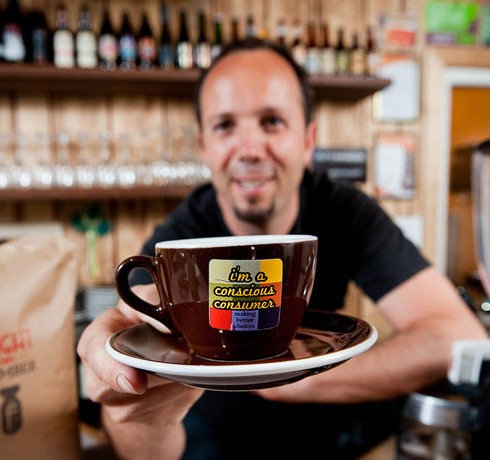
While New Zealand consumers say they’re increasingly influenced by claims of sustainability from retailers, how their behaviour is actually affected is still very much up for debate.
What people say they do, and what they actually do, are, or course, two different things. The fact is, little to no hard and fast data exists around how consumer behaviour is actually affected by businesses’ sustainability status.
Whether that’s a problem or an opportunity depends on your perspective however.
Ben Gleisner, co-founder and national director of Conscious Consumers, believes it’s very much an opportunity.
To that end, Conscious Consumers has created a new sustainability-based spending calculator called the Good Spend Counter, that promotes and rewards businesses based on their environmentally-friendliness, and provides them with actual stats around how much of their revenue is based on ‘green’ spending. Gleisner says that the plan is for businesses to actually see, in dollars and cents, just how much they stand to gain by improving the way they do business. The logic goes that once business see how those behaviours affect their bottom line, they’ll do whatever it takes to make sure that revenue continues, customers will develop brand loyalty to those businesses doing it best, and with that, everybody benefits.
They’re crowdfunding it, of course.
With just over a week of their PledgeMe campaign to go, Idealog spoke with Gleisner about the problem with the green movement, why businesses have so much trouble embracing sustainable behaviours, and just what it will take to fix the world.
Idealog: Hi Ben. How’s the crowdfunding going?
Ben Gleisner: It’s going good. We’re just past the halfway mark, and have raised over $39,000. When we hit 40k, we’ve got another 10k pledged from SIFT, the Sustainable Initiative Fund Trust, which is great. We’ll need all the support we can get.
Unlike many feel-good projects, the Good Spend Counter is a reward-based crowdfunder, rather than a donation-based one, right?
That’s right. It’s not by donation. When you support the Good Spend Counter, you basically get a reward of equal value. When you spend $50, you get a reward worth $50. It’s a no brainer.
What’s your position on donation-based crowdfunding for sustainability projects? Is that a good model for these sorts of campaigns?
I think traditional charity models of operating have done that a lot to date, but we’re a social enterprise. We actually provide a service and a product that people buy – you get the product and you get the social benefit too.
Let’s talk about stats. There’s a lot of ink getting spilled around how sustainability is a great marketing tool, but how great actually is it? What are the actual numbers around it?
People want to buy things and they want to get a good deal, but they also want those choices to be sustainable. What we’ve found is people are definitely interested in supporting good businesses, but there really isn’t the data to back that up.
Surveys for example provide an expressed preference, not a revealed preference, and there’s a real difference there. We want to track the actual consumer behaviour, to produce the actual data. No one tracks spending of consumers around sustainability. We need to be able to show businesses that people really do spend on sustainability. We need to show them with money.
For businesses to really embrace sustainability, they need to be guaranteed, 100%, that there’s a return on investment – they need concrete evidence.
So is that the only way to truly motivate businesses to embrace sustainability? Through the profit-motive?
Well, yes. Our whole ethos is about positive framing. It’s not about how the world is screwed and the animals are dying. It’s about empowering people with the idea that the money they spend can change the future. Collectively we can change the world – no doubt about it. Make it simple and easy, don’t make it outrageously expensive, and make it easy to find. If you make it easy, people will do it.
You sound pretty cynical for a greenie.
Well I’m ex-treasury. I’m an economist. This is about building an economic model. We say ‘look – you want to get some of our spend? Start being sustainable and you’ll get it’.
If you can reward customers for doing good, the choice for consumers becomes easy. There’s a few surveys that say ‘be sustainable; it’s good for business’, but until you show [business owners] that money walking in the door – or out the door – they’re not going to change.
Has the government got the power to affect change like this? Can’t the government just wave a big stick and get the job done?
I haven’t given up [on government action] completely, but I did leave my role in government. [Laughs]. I just do not think we can rely on governments to do what needs to be done. The short term election cycle, their risk adversion – they worry about doing anything different from the status quo, and things need to be quite a bit different from the status quo, I think.
And the fact is, we can do it without regulation. But the economies of the world, or at least the consumers that drive them, need to be willing to show businesses that they will spend with sustainable businesses.


 Image: Rupal Hira
Image: Rupal Hira

